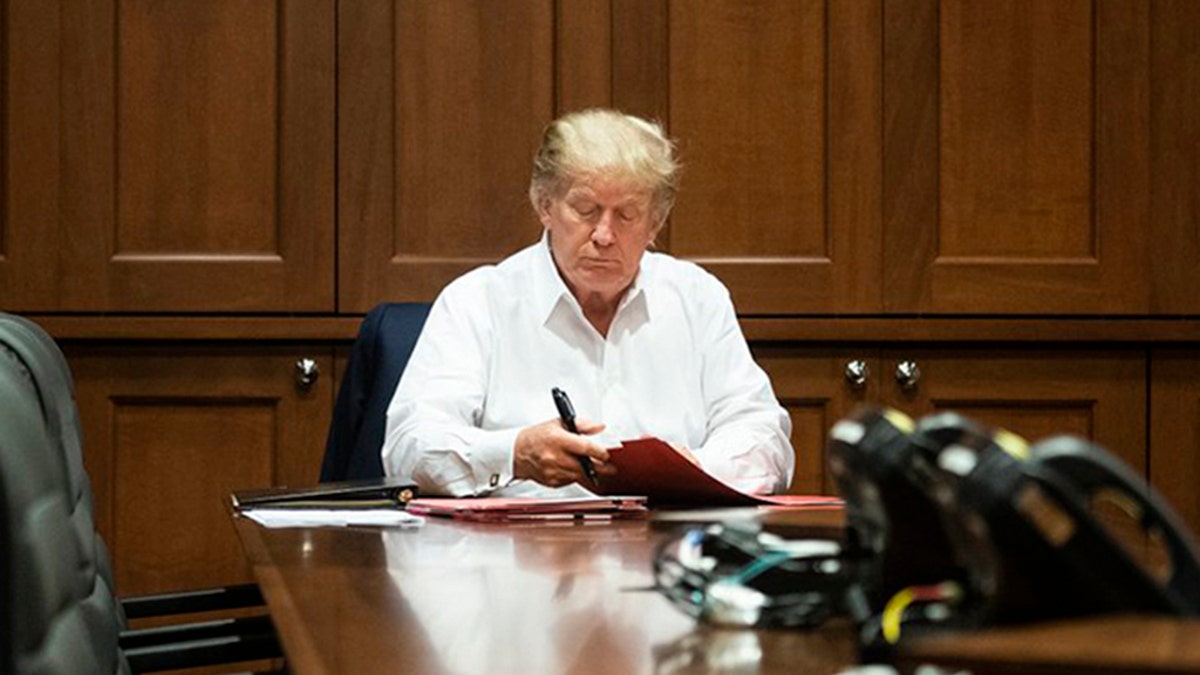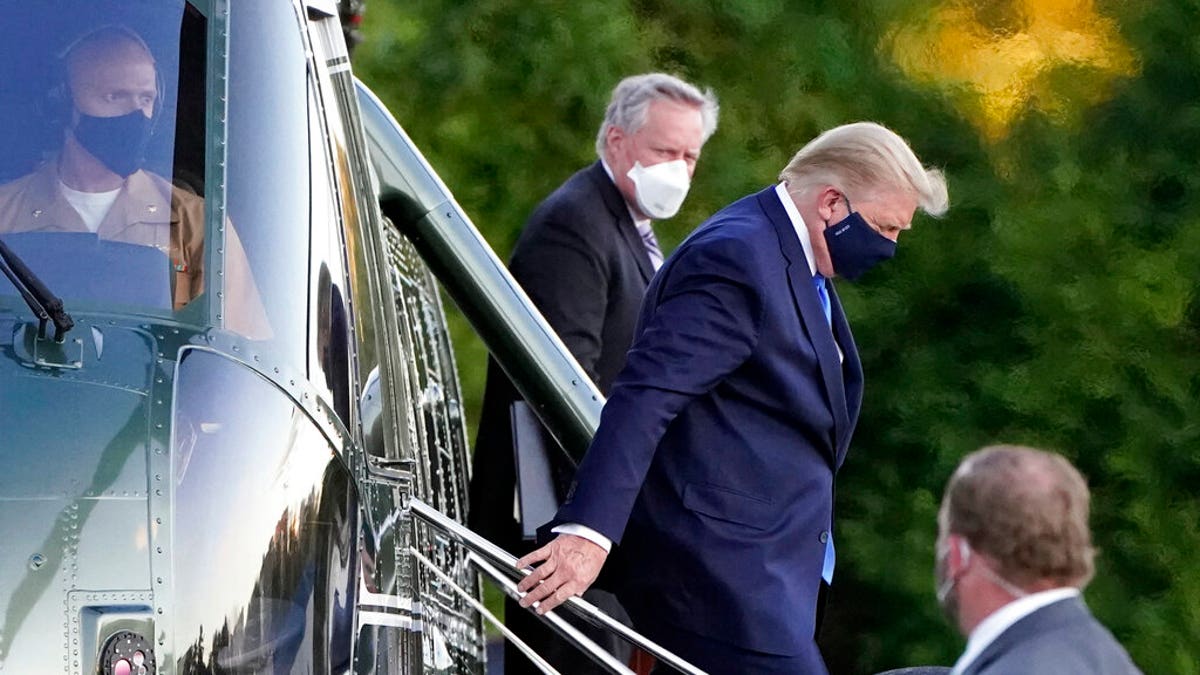White House medical team gives update on President Trump’s condition
White House physician Dr. Sean Conley, alongside Walter Reed’s Dr. Sean Dooley and Johns Hopkins’ Dr. Brian Garibaldi, said President Trump could return to the White House as soon as Monday, Oct. 5.
President Trump could be released from the Walter Reed National Military Medical Center as soon as Monday, his medical team said in an update Sunday to members of the White House press pool, as the president continues his treatment on dexamethasone and Remdesivir to fight coronavirus.
Dr. Sean Conley said Trump has experienced two episodes of transient drops in oxygen levels. From Thursday into Friday morning, Conley said Trump was doing well with mild symptoms and oxygen levels in the high 90s. By later Friday morning, the president had a high fever and his oxygen levels began dipping below 94%.
At that point, Conley recommended supplemental oxygen treatment due to concerns about the possible rapid progression of the disease. Trump was adamant he did not need the treatment, but it was nevertheless administered for about an hour at the White House.

President Trump photographed working from a conference room at Walter Reed National Military Medical Center on Saturday, Oct. 3, 2020, after testing positive for the coronavirus.
He began showing milder symptoms and began moving about his residence at the White House, but, despite these improvements, Conley said the medical team determined the best course of action was to transfer Trump to Walter Reed in Bethesda, Md., by Friday afternoon for a more thorough evaluation and monitoring.
Dr. Sean Dooley, a pulmonologist at Walter Reed, said the president has remained without a fever since Friday morning and his cardiac, kidney and liver functions are all still normal. He said Trump has not shown signs of shortness of breath and was walking around his medical unit without limitation or disability.
TRUMP'S MEDICAL TEAM SAYS HE'S DOING 'VERY WELL'; OFFICIAL WARNS NEXT 48 HOURS ARE 'CRITICAL'
Dr. Brian Garibaldi, with Johns Hopkins Hospital in Baltimore, said Trump has completed his second dose of Remdesivir and has exhibited no side effects as far as his team can tell. His team will therefore continue plans to keep him on the medication over a five-day period. In response to transient low oxygen levels, the president also has begun dexamethasone therapy and was given his first dose Saturday.
Garibaldi said the president feels well Sunday and the team plans to have him eat and be up and about as much as possible to be mobile, and "if he continues to look and feel as well as he does today, our hope is that we can plan for a discharge as early as tomorrow to the White House where he can continue his treatment course."
“As with any illness there are particular ups and downs over the course especially when a patient is being so closely watched 24 hours a day,” Conley said. “The president wanted me to share how proud he is of the group, what an honor it is for him to be receiving his care here at Walter Reed and be surrounded by such incredible talent: academic leaders, department chairs, internationally renowned researchers and clinicians, including the support of Dr. Garibaldi from Johns Hopkins.

President Donald Trump arrives at Walter Reed National Military Medical Center, in Bethesda, Md., Friday, Oct. 2, 2020, on Marine One helicopter after he tested positive for COVID-19. White House chief of staff Mark Meadows is at second from left. (AP Photo/Jacquelyn Martin)
“I’d like to reiterate how pleased we all are with the president’s recovery,” Conley said.
Before the press conference, Trump campaign senior adviser Steve Cortes described the president as "upbeat and assertive as ever" as he fights the coronavirus in an appearance on “Fox News Sunday” with Chris Wallace.
He added: "This president is going to recover, we are highly confident of that."
White House chief of staff Mark Meadows said on "Justice with Judge Jeanine" Saturday night that the president was experiencing symptoms that had his staff "real concerned" on Friday, including fever and low blood oxygen level, but that he has since improved.
CLICK HERE TO GET THE FOX NEWS APP
Fox News' Tyler Olson contributed to this report.













































